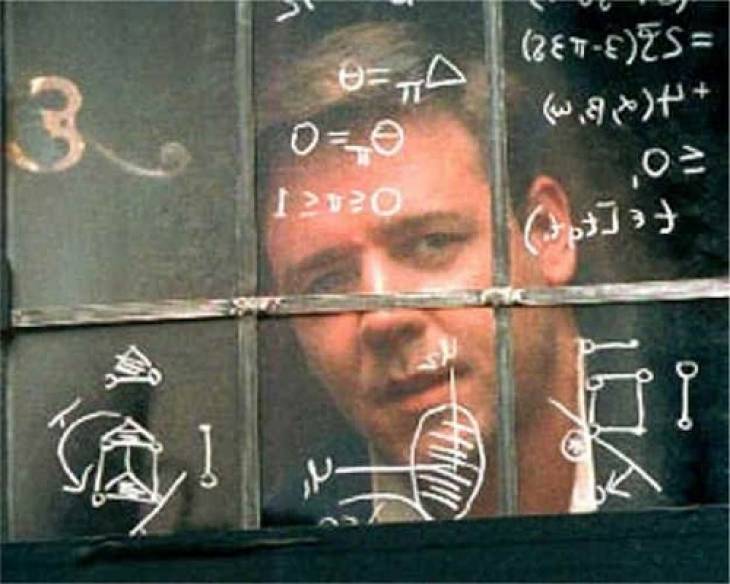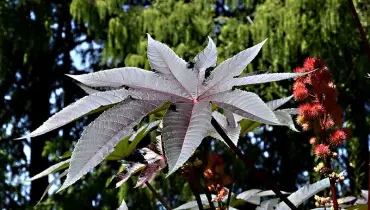How to "Steal" Like a Genius: 7 Insights for the Budding Creator

“Talent imitates, genius steals” ― Oscar Wilde
If you are like most creative people who want to write a book, start a blog, launch a podcast, learn an instrument or create something else professionally, you probably wrestle with the fear of not being good or original enough. At least some beginning creators have this problem that can easily be solved by "stealing" the best ideas like successful artists—genius creative pros.
Beyond smarts, the greatest minds in history all have this characteristic in common—they steal.
According to author Austin Kleon in his bestselling book Steal Like An Artist, the so-called “original” creators and thinkers are simply people who effectively learned how to remix or “steal” other people’s ideas or materials.
This notion of “stealing” other people’s material might surprise or even put you off a little, but the kind of stealing Kleon refers to in his book is not about pretending you came up with somebody else’s idea or simply modifying a few details. It’s about being selective and strategic with the process of choosing your influences, taking what resonates with you from other people’s ideas, making it your own, and being diverse enough to find unexplored points of intersection between your various influences, as writer T.K. Coleman observes in a beautiful Medium article discussing lessons from Kleon’s book.
The combinatorial or “stealing” nature of creativity is something that the greatest artists, inventors and entrepreneurs of all time have employed throughout history. In a facinating 1903 letter, Mark Twain writes to his friend Helen Keller who had some plagiarism charges made against her some 11 years prior, when her short story “The Frost King” was found to be strikingly similar to Margaret Canby’s “Frost Fairies:”
“Oh, dear me, how unspeakably funny and owlishly idiotic and grotesque was that ‘plagiarism’ farce! As if there was much of anything in any human utterance, oral or written, except plagiarism! The kernel, the soul — let us go further and say the substance, the bulk, the actual and valuable material of all human utterances — is plagiarism. For substantially all ideas are second-hand, consciously and unconsciously drawn from a million outside sources, and daily used by the garnerer with a pride and satisfaction born of the superstition that he originated them; whereas there is not a rag of originality about them anywhere except the little discoloration they get from his mental and moral calibre and his temperament, and which is revealed in characteristics of phrasing.”
Twain doesn’t stop there. He goes on:
“When a great orator makes a great speech you are listening to ten centuries and ten thousand men — but we call it his speech, and really some exceedingly small portion of it is his. But not enough to signify. It is merely a Waterloo. It is Wellington’s battle, in some degree, and we call it his; but there are others that contributed. It takes a thousand men to invent a telegraph, or a steam engine, or a phonograph, or a telephone or any other important thing — and the last man gets the credit and we forget the others. He added his little mite — that is all he did. These object lessons should teach us that ninety-nine parts of all things that proceed from the intellect are plagiarisms, pure and simple; and the lesson ought to make us modest. But nothing can do that.”
Similarly, in a brilliant piece of literary criticism titled "Philip Massinger" (1920) that explores how one could judge a creative piece of work and how one could establish a criterion of judgment that goes beyond subjective response, which renders every opinion equal, T.S Eliot wrote:
“One of the surest of tests is the way in which a poet borrows. Immature poets imitate; mature poets steal; bad poets deface what they take, and good poets make it into something better, or at least something different. The good poet welds his theft into a whole of feeling which is unique, utterly different from that from which it was torn; the bad poet throws it into something which has no cohesion. A good poet will usually borrow from authors remote in time, or alien in language, or diverse in interest.”
Even Steve Jobs knew of this combinatorial nature of creativity when he famously proclaimed that “creativity is just connecting the dots,” and emphasized that "Good artists copy; great artists steal."
Kleon echoes these creative titans in his book, insisting that originality isn’t about doing what has never been done before in a strict sense; it’s about the unique way in which each individual gives expression to his or her artistic influences. Quoting Jonathan Lethem, Kleon argues that “when people call something ‘original,’ nine out of ten times they just don’t know the references or the original sources involved.”
“What a good artist understands is that nothing comes from nowhere,” Kleon writes. “All creative work builds on what came before. Every new idea is just a mashup or a remix of one or more previous ideas.”
Top tips for mashing up, remixing and “stealing” from the best ideas.
If you’re interested in how you too can mashup, remix or “steal” the best ideas like a creative genius, here are seven pragmatic insights that will help you do just that so that you can build on and from what came before:
1. Identify your main passion.
It all starts with identifying your main passion. Jessica Hische in a beautiful quote states: “The work you do while you procrastinate is probably the work you should be doing for the rest of your life.” That’s your true passion; your main passion. Don’t become a boring one-dimensional person who only knows about the one thing you studied formally in school. Discover, identify with and embrace your inner passion, whether it is writing, swimming, painting or skydiving. It will help you know or get a bearing on the direction your creative self is meant to go. Once you know what your passion is, you can start from there and build on it. As obvious as it sounds, it’s vital.
2. Pursue various other passions.
Many of us have more than one passion, but unfortunately we look at our various other passions as a distraction. However, to “steal” like a creative genius, you have to be willing to flirt with and indulge in the various other things you’re fascinated with besides your main passion and formal training. This is important even if the various other passions appear to have no direct or obvious connection to you job, career goals or life needs. Your seemingly distracting passions might very well be the means by which you’ll ultimately distinguish yourself from everyone else in your field.
Kleon explains:
“If you have two or three real passions, don’t feel like you have to pick and choose between them. Don’t discard. Keep all your passions in your life...The thing is, you can cut off a couple passions and only focus on one, but after a while, you’ll start to feel phantom limb pain. I spent my teenage years obsessed with songwriting and playing in bands, but then I decided i needed to focus on just writing, so I spent half a decade hardly playing any music at all. The phantom limb got worse and worse.
About a year ago I started playing in a band again. Now, I’m starting to feel whole. And the crazy thing is, rather than the music taking away from my writing, I find it interacting with my writing and making it better — I can tell that new synapses in my brain are firing, and new connections are being made.”
3. Embrace the intersection of your various passions.
Writer James Altucher has a neat concept alluded to by Coleman in his Medium article called “Masters of the intersection.” The basic idea is that you can become great by taking two or three things you really like and becoming the best in the world at the intersection between those two things. This allows you to achieve greatness not by rising to the top of an existing craft, but by creating an entirely new hybrid craft.
“So let’s say you’re really interested in Basketball, but you’re not good enough to go pro,” writes Coleman. “Let’s also say you’re really interested in Philosophy, but you’re light years away from being the next Aristotle. What if you focused on the intersection of those two fields by philosophizing about basketball? Aristotle never did that. And while you may never beat Lebron James or Stephen Curry in a game of 1-on-1, you might be better than both of them when it comes to the art of philosophizing about life lessons that can be learned from their sport.”
4. Read like your creativity depends on it.
Reading is to the brain what exercise is to the body. So, if you want to strengthen your creative muscles and also dispel any creative solipsism where you imagine your point of view is the only correct point of view or is the only point of view that exists, then you need to read widely. “Always be reading,” Kleon adds. “Go to the library. There’s magic in being surrounded by books. Get lost in the stacks. Read bibliographies. It’s not in the book you start with; it’s the book that book leads you to.”
Reading will expose you to knowledge that already exists; it will broaden your mind by giving you access to new ideas and a new way of thinking about things that you might be taking for granted. This ultimately makes it easier for you to tap into your own creative ideas.
And don’t merely read stuff for the sake of it. Practice what you read like a medical student. Jot down notes. Quiz yourself with flashcards. Learning is deeper and more durable when it is effortful and active, not passive.
5. Start the work you feel compelled to do in the moment.
Many people often get stuck on the state of being, such as “being a writer,” “being a singer” or “being an entrepreneur” and never get around to getting things done because they are too busy trying to figure out if their state of being gives them permission to do the thing they want to do. Just forget about the state of being already, and just be. Risk. Experiment. Do something now. Express your creative impulses on the go.
You will find out what you are capable of not by spending all day, every day philosophizing, naval gazing and interrogating your soul endlessly, but by getting started on the task you feel compelled to do in the moment. If you’re interested in it right now, then that’s enough reason to try it out. Feel what the creative process actually feels like, and see what the creative process actually produces in your case.
We are all evolving and growing every day. That means we will always be learning something new about ourselves until our last breath. Don’t wait until conditions are perfect or till you know yourself fully—that’ll never happen. As Kleon writes: “If I’d waited to know who I was or what I was about before I started ‘being creative,’ well, I’d still be sitting around trying to figure myself out instead of making things. In my experience, it’s in the act of making things and doing work that we figure out who we are.”
6. Ditch the myth of originality.
“When you were a baby, you learned how to talk by copying the adults around you and you kept adding to your repertoire of influences. That’s also how you learn to create,” writes Coleman. Originality, therefore, is about seeing how the pros do it, copying them and then developing your own unique way of putting things together. You don’t get to create the alphabet; you only get to use the alphabet creatively by rearranging it in a way that communicates your message clearly and, hopefully, interestingly.
So, forget about the mythical, romantic notion of being original. The quest for originality is a distraction. It usually leads to a self-obsessive focus on saying what’s never been said when all that really matters is saying your truth — what you feel, what you believe and what you mean. As you tell your truth, insists Coleman, your unique style will emerge through spontaneous order. Eventually, people will start to accuse you of being an original too.
7. Share good work with others.
Focus intently on what you are doing at any given moment so that you produce the best work you can. Then, make it possible for others to do what you have done (that is, build on your work just as you have built on other’s work) by sharing your finished work with others. Be generous and nice to all. This is how you make a positive contribution in the world and help foster the creative spirit.
Accept constructive criticism that helps you improve. Don’t be too defensive of your work, even though you may feel closely attached to it. Everything is inspired, everything comes from somewhere. Creators and their output are a sum of inspirations and heroes. Always remember that. Creative work is inspired and it is iterative. Do your best work and share it with people.
See Also: Why Achieving Creative Success is a Process, Not an Event








![[node:title]](/sites/default/files/styles/video_thumbnail_bottom/public/Facebook-Group-Admin-Screening-Update.jpg?itok=x4McnF0Z)











